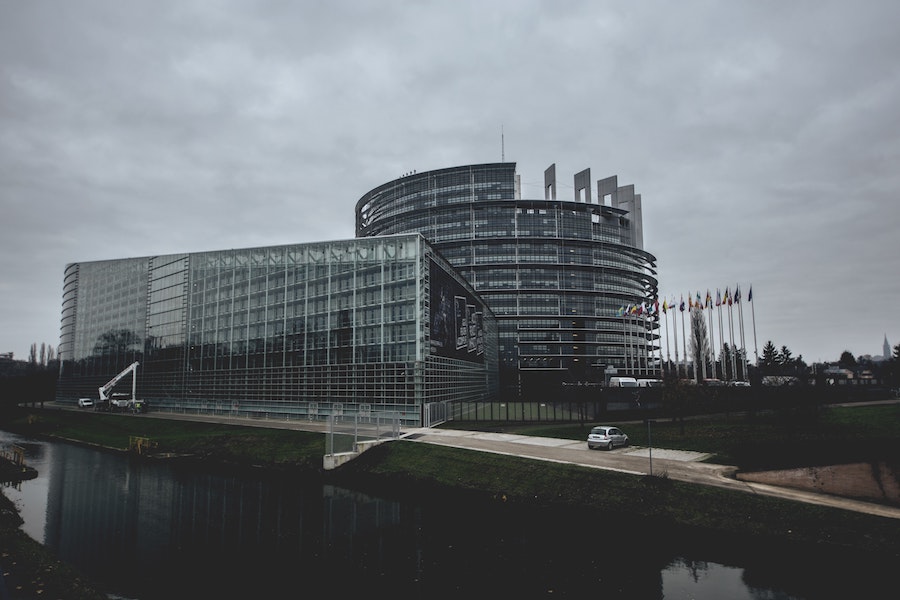UK CATASTROPHE MUST NOT BE ALLOWED TO BECOME CONTAGIOUS

Over the past half century, European Union environmental policy has made huge strides, ensuring the establishment and implementation of beneficial strategies throughout the bloc.
Today, the EU’s comprehensive Sustainable Development Strategy provides an overarching long-term framework, aiming at synergies between economic, social and environmental goals. With its expansion, the Union has undoubtedly become a global environmental leader resulting in its member states becoming healthier places to live.
European environmental protection legislation works when it is fully implemented and enforced, thanks to legislation developed by the EU.
Without such polices, our environment would look and feel quite different. Lead would still be being pumped into the air from much of our cars; chlorofluorocarbons would have further depleted the ozone layer; and nitrogen oxide emissions from road transport would be 10 times higher.
The absence of these progressive EU measures would mean that life in our rivers, lakes and estuaries would still be choked by effluent, not to mention the unsavoury prospect of bathing in coastal waters polluted by sewage; and increasing swathes of land would be eaten up by expanding landfills for waste, with incinerators emitting toxic fumes.
While we celebrate the arrival of spring, the British seem to have no respite from the long Brexit winter which their leaders past and present have subjected them. What appears like a never-ending story is beginning to corrosive consequences on so many aspects of British life.
We must all hope and pray that Britain’s divorce from Europe doesn’t have too many adverse impacts for the rest of us, especially on our environment.
With the forces of nature blind to national borders, there are growing concerns that the UK’s departure from the EU could compromise its environmental standards which could in turn have consequences for us all.
As a Briton who has lived in Prague for over 12 years, I worry deeply about what will happen after Brexit. I am concerned about the possible contagious effects that my country’s ill advised decision might have, not least of which on our delicate environment.
And, as a hitherto key driver of many positive environmental measures within the EU, could Britain’s departure compromise environmental policies among the remaining 27 countries within the bloc? Could the likes of the Babiš government find a way to use absence of the UK’s voice in Brussels as an excuse for weakening its sustainability commitments? The dissatisfied Brits have delivered a body blow to the West, and to the ideals of international cooperation, liberal order and open societies to which the country has in the past contributed so much. We cannot and must not allow this dreadful act to harm the rest of Europe.
Despite it being over three years since the country decided to leave the bloc, British politicians appear to be running around in ever-decreasing circles, still desperately trying to work out a viable exit strategy. Even the most dedicated of political observers are growing tired of these shenanigans.
But while the debate rages on, there appears to be a distinct lack of discussion about the many negative impacts that the demise of one of its biggest members will have on the other members of the European ‘club’.
Following the surprise outcome of the British referendum, France’s infamous far rightist, Marine Le Pen said that UK’s vote to leave the EU, was the equivalent of the Berlin Wall falling in 1989. She was right. Brexit is a momentous event in the history of Europe and from now on I fear that the narrative will be one of disintegration not integration.
Thankfully the 27 remaining countries have succeeded in remaining united. As Britain sails off on its journey towards some kind of glorious isolation, member states must surely work together to make sure the ominous aspirations of Marine Le Pen, Viktor Orbán and other populists fail.
After decades in which sustainability issues have moved from the fringes of political life into the mainstream, recent events suggest that the environment has slipped down the political agenda, particularly as a consequence of so-called ‘populism’.
In the United Kingdom, the Climate Change Act, for example, passed in 2008, created an impressive, legally enforceable target to reduce greenhouse gas emissions by 80 per cent by 2050 – the most ambitious target in the world.
Throughout three years during which Britain has been consumed with the Brexit debate, there has been barely a mention of any such issues and the consequences that Britain’s departure from the European Union might have on the environment. Worryingly, many leading “Brexiteers” have expressed scepticism about some of environmentalism’s “sacred cows” many of which have been pioneered by the European Union, while US President Donald Trump’s withdrawal from the Paris climate change agreement represents a devastating blow for the future of our planet.
Brexit is certainly ringing alarm bells among the environmental community. For nearly half a century, much of UK environment regulation has been decided at EU level. Britain may be leaving the EU, but it’s impact won’t be confined within its coastline. There is now a target across the EU to recycle 50 per cent of household waste, which has driven ever greater efforts to improve recycling rates across the country. The EU’s Ambient Air Quality Directive sets a series of targets to limit dangerous pollutants like nitrogen dioxide. The EU Renewable Energy Directive requires the UK to produce 15 per cent of its energy from renewable sources – not just electricity, but all energy, including that used in heating and transport – by 2020.
As a consequence, coal use is at its lowest level since the Industrial Revolution. Britain’s beaches have been cleared up considerably since the Bathing Water Directive came into force in 1976, and EU legislation has driven major improvements in sewage and drinking water treatment.
The fear is that outside of the EU, Britain’s environmental standards might slip, thereby potentially having an adverse effect on the continent of Europe and beyond.
Some politicians have criticised EU regulations and directives as unnecessarily burdensome, suggesting that there is a desire to get rid of them or water them down. Critics have noted that even with EU rules in place, UK politicians have failed on targets for air quality, for example, and worry that without EU pressure, there would be even less incentive to raise standards.
Brexit has raised countless questions, principally about such issues as trade and migration. But what about the environment and the consequences of its neighbours?
Can UK politicians be trusted to protect the environment after Brexit? Do critics of EU regulation have a point when they argue that such rules are often excessive? Would environmental laws have greater legitimacy and support if passed by elected politicians rather than by EU institutions?
None of these questions are satisfactorily addressed in the Brexit withdrawal agreement.
Britain may well be on a terminal decline because of Brexit. But Brussels must now use all its strength to ensure that what marks a terrible tragedy for my country of birth does not hurt the remaining members of the EU.
For more than 1,500 years, the nations of Europe had regularly made war on one another – the French vs. the British, the Germans vs. the French, the Austrians vs. the French, the Russians vs. the Germans, and so on. 1,500 years of hatred and endless fighting.
But in the ruins of 1945, the nations of Europe, with great courage, said “never again” and meant it. From this, by an act of willpower, they forged an alliance which ultimately was joined by almost every European nation to become the EU.
Now, some 70 years later, most with memories of those horrors is dead, and shock and disgust that propelled them to find a new way to live is but a fading memory. The EU is far from perfect, but it was infinitely preferable to its war-torn history that had preceded it. But now, Britain, in a singular moment of fear, driven by lies inspired by such scenes of Syrian refugees escaping the ravages of their civil war, has opted to walk away from that unique monument to a new world. That in itself is a tragedy. Despite of Britain’s selfish abandonment of the EU, the Czech Republic and its fellow member states must resolve to continue its work to protect and promote a sustainable environment for the future wellbeing of our wonderful continent.
By Jonathan Wootliff
 A former director of Greenpeace International, Jonathan Wootliff lives in Prague and works throughout the world as a sustainability consultant to business. He is Chair of the Board of Experts of the Czech Business Council for Sustainable Development. He has consulted many large corporations including BP, Colgate-Palmolive, McDonald’s, Procter & Gamble and Whirlpool, and provided counsel to companies on the development of sustainability strategies that benefit the environment, society and business. Among his many activities, he helps companies to resolve disputes, forge productive relationships with non-governmental organizations, and build long-term sustainability strategies. A qualified journalist with a subsequent background in public relations, Jonathan commonly assists companies with their sustainability communications. He can be contacted at jonathan@wootliff.com.
A former director of Greenpeace International, Jonathan Wootliff lives in Prague and works throughout the world as a sustainability consultant to business. He is Chair of the Board of Experts of the Czech Business Council for Sustainable Development. He has consulted many large corporations including BP, Colgate-Palmolive, McDonald’s, Procter & Gamble and Whirlpool, and provided counsel to companies on the development of sustainability strategies that benefit the environment, society and business. Among his many activities, he helps companies to resolve disputes, forge productive relationships with non-governmental organizations, and build long-term sustainability strategies. A qualified journalist with a subsequent background in public relations, Jonathan commonly assists companies with their sustainability communications. He can be contacted at jonathan@wootliff.com.

